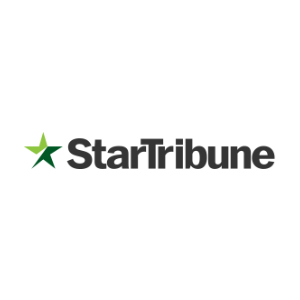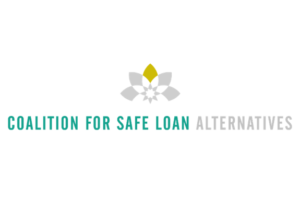Star Tribune
St. Paul-based Sunrise Banks, which aims to make a buck doing good as it grows its consumer loan portfolio, plans to take on the payday lenders this year with a new product that it has tested on its own employees and several other pilot employers.
“We’re strongly opposed to predatory lending and that’s how we view payday-loan lenders,” said Joyce Norals, chief human resources officer at Lutheran Social Service of Minnesota.
LSS has moved from a pilot employer to including the Sunrise plan as an employee-benefit option this year.
“As we learned about what Sunrise was offering, it seemed like a safe alternative,” Norals said. “Most of us who have options would be just shocked to hear what people may encounter through payday lending. As we learned about what Sunrise was offering it seemed like a safe alternative. We started as a pilot and we launched the program [during benefits enrollment in November].”
David Reiling, a veteran urban banker whose family has owned Sunrise since the 1980s, has spent more than $1.25 million to prepare and test a product over three years that he asserts is far more economical and safe for consumers.
That’s a significant investment in a new product for an institution that last year made about $8 million on its $800 million in assets.
Reiling
Reiling
The “TrueConnect Employee Benefit Program” also could help Reiling profitably grow his bank.
Sunrise has branded its new loan product, not as a high-interest unsecured consumer loan, but as an employment benefit.
“It’s a consumer installment loan at the end of the day,” Reiling said in a recent interview. “But it’s a much better deal than a payday loan. And it must be paid off by the end of the year. It’s also fair and transparent.”
Much has been written about nonbank payday lenders, and sometimes the big bankers who finance them, and effective interest rates that can skyrocket to 400 percent, when working-class people fall behind on payments to the largely unregulated lenders.
Payday loans are defined as small dollar loans due on the borrower’s next payday. In Minnesota, an average payday loan is $380 and, for two weeks, carries a finance charge that computes to a 273 percent annual percentage rate (APR).
Minnesota Department of Commerce data show that payday loan borrowers take an average of 10 loans per year and are in debt for 20 weeks or more at triple-digit APRs, according to an Associated Press story last year. By the end of 20 weeks, an individual will pay $397.90 in charges for the average $380 loan. Borrowers can find themselves caught in a debt trap, which can result in default or bankruptcy, lured by the prospect of getting proceeds from their paycheck a little bit early.
The Sunrise TrueConnect product, offered through employers, is a loan against future salary in amounts of $1,000 to as much as $3,000. It depends upon the employer and how much the employee makes, but not more than 8 percent of gross pay. The loan is retired through pay deductions over the course of a year.
The maximum interest rate is 25 percent over the one-year term. That would be $125 in interest on a declining-balance loan of $1,000 over 12 months. Employers will position the loan as something to be tapped in an emergency to cover a car repair, medical bill or other one-time expense.
The maximum rate, such as on credit cards, is 36 percent for small loans offered by Sunrise and thousands of other federally insured depositories.
Sunrise is using a third-party software firm that established the electronic-and-administrative infrastructure. Sunrise loans the money and collects payments.
Reiling said Sunrise has apprised its federal regulator, the Office of the Comptroller of the Currency, and also developed the program under the eye of the federal Consumer Financial Protection Board, as well as several consumer groups.
Sunrise has several hundred loans already in place from its first four employers, including Lutheran Social Service and a nonprofit housing agency in Cleveland. Employers are attracted because the program doesn’t cost them anything other than setting up payroll deduction.
The loan can be processed and the cash disbursed within 24 hours through Sunrise and Employee Loans Solutions, the software company.
Reiling, traditionally a small-business lender, also sees the TrueConnect program helping him build a profitable consumer loan portfolio that could rival his $450 million commercial loan portfolio.
“This business is one in which you have to do at scale to be financially viable, even though you’re talking about interest rates in the credit card range,” he said. “But these loans are small and there’s a higher default rate, and a ton of consumer compliance and infrastructure that needs to be in place. The IT and data security investment for a program like this are significant.
“The payday lending industry is $30 billion annually. We would be a very small slice of that. But we think we can grow it to $450 million. Using the employer channel allows us to win trusted partners and to achieve the scale we need.”
Norals said she still considers 24.9 percent a high interest rate, but not compared to payday loans.
“This is for emergency situations, we’ve stressed to employees,” she said. “Under this plan, you know your payments. And the amount you borrow is limited and there are strict guidelines. It’s still a new program, but so far so good.”


